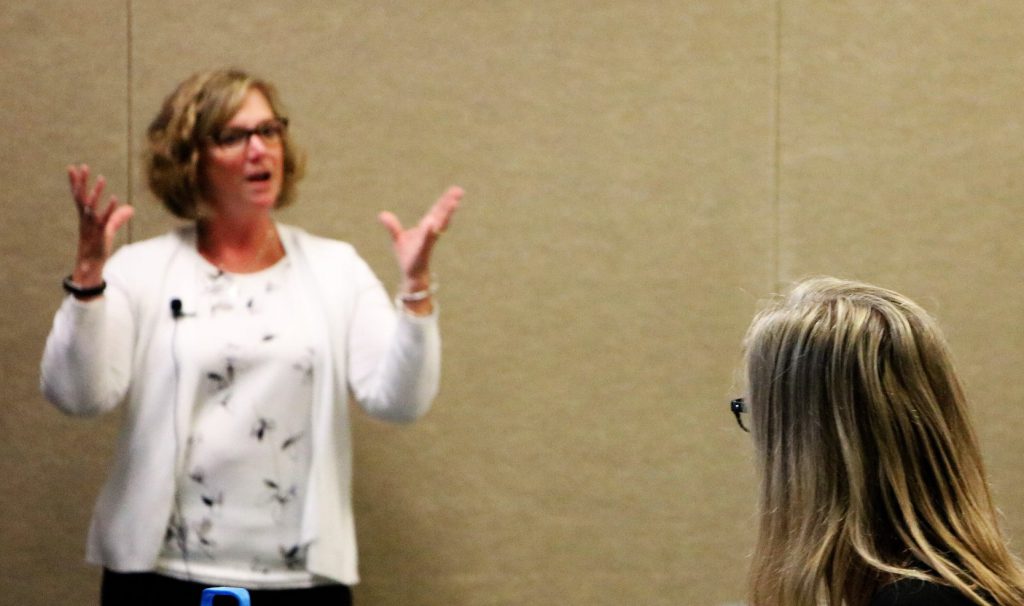Education strategy uses accommodations to create flexible learning environment for all students
When educators plan ahead to eliminate accessibility barriers in their lessons and classrooms, they benefit students with and without disabilities, the Center for Disabilities Studies’ Esley Newton and Amy Brown said yesterday at CDS’s Lunchtime Learning workshop in Newark.
Newton and Brown apply this philosophy, which informs an educational approach called Universal Design for Learning (UDL), in their work with the Adapting Curriculum and Classroom Environments for Student Success (ACCESS) Project.
UDL, Newton said, stems from an architectural movement that sees accessible design elements, such as wheelchair ramps, curb cuts, wide hallways and flat panel light switches, as beneficial to all users, not just people with disabilities. UDL translates this to the classroom by encouraging educators to consider obstacles students may face, then proactively incorporate accommodations. The result is a curriculum that offers students multiple ways to absorb, apply and communicate information.
In this way, Newton explained, educators can empower learners with a wide range of needs, language abilities, cultural backgrounds, attention spans and learning styles.
“In education, we often assume that what works for us will work for our students as well,” Brown said. However, she asked, “Why do we assume one approach is a reasonable way to accommodate all the diversity” of the student population?
Newton’s and Brown’s PowerPoint presentation is available online here.
This entry was posted in About CDS, News and tagged Adapting Curriculum and Classroom Environments for Student Success, K-12 Education, Lunchtime Learning, universal design for learning.

